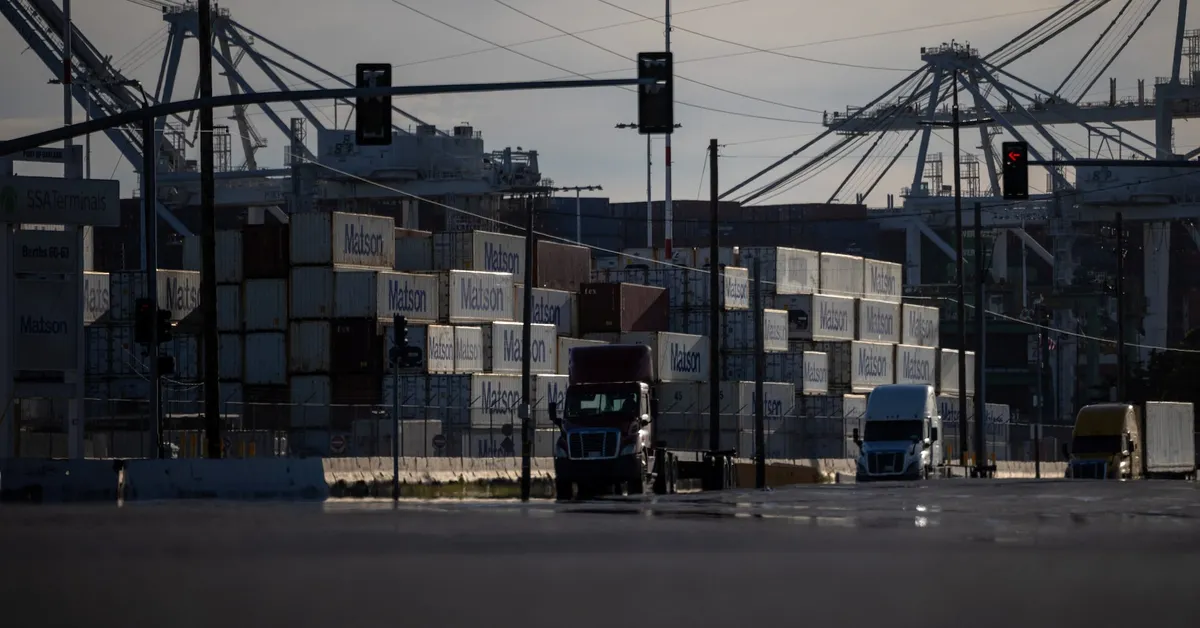
On April 11, 2023, turmoil erupted in the global markets following the imposition of U.S. President Donald Trump's tariffs. The situation showed little sign of easing, with markets experiencing significant drops and foreign leaders scrambling to formulate responses to what many see as a dismantling of the world trade order. Although there was a brief respite for battered financial markets on Wednesday when Trump announced a 90-day pause on duties for several countries, the escalating trade war between the United States and China, the world's second-largest economy, has raised fears of a looming recession and further retaliatory measures.
During a cabinet meeting on Thursday, U.S. Treasury Secretary Scott Bessent sought to reassure skeptics by indicating that over 75 countries were eager to initiate trade negotiations with the U.S. Additionally, Trump expressed optimism about reaching a deal with China. Bessent dismissed the ongoing market sell-off, predicting that successful trade agreements with other nations would bring much-needed stability to the markets.
In a significant development, the U.S. and Vietnam agreed to begin formal trade talks after Bessent's discussion with Vietnamese Deputy Prime Minister Ho Duc Phoc. Vietnam, known for its role as a Southeast Asian manufacturing hub, is reportedly ready to crack down on Chinese goods that are being shipped to the United States through its territory to avoid tariffs, according to exclusive reports from Reuters.
Despite pausing the 'reciprocal' tariffs on other nations, Trump has intensified duties on Chinese imports as a response to Beijing's initial retaliation. Since taking office, Trump has imposed new tariffs on Chinese goods totaling 145%, as confirmed by a White House official. Chinese officials have been actively seeking counsel from other trading partners on how to navigate the U.S. tariffs, with recent discussions held with counterparts in Spain, Saudi Arabia, and South Africa.
While addressing reporters at the White House, Trump expressed confidence in the possibility of a deal with China, claiming that the U.S. has been taken advantage of for too long. He acknowledged a long-standing friendship with Chinese President Xi Jinping and expressed hope that both nations could reach an agreement beneficial to both parties. However, China has firmly rejected what it perceives as threats and blackmail from Washington, asserting its commitment to counter any continued aggression from the U.S.
As tensions persist among the top three U.S. trade partners, which include Canada and Mexico, Goldman Sachs has estimated that the probability of a U.S. recession now stands at 45%. Even with the recent rollback of some tariffs, the overall average import duty rate imposed by the U.S. remains the highest it has been in over a century, according to researchers from Yale University. Business leaders are increasingly concerned about the chaotic implementation of these tariffs, which have led to soaring costs, declining orders, and disrupted supply chains.
In a rare moment of relief, the European Union announced that it would pause its initial counter-tariffs, aiming to give negotiations a chance. European Commission President Ursula von der Leyen stated on social media that while they wish to foster dialogue, counter-tariffs could be reinstated if negotiations do not yield satisfactory results. The EU had previously planned to impose counter-tariffs on approximately €21 billion ($23 billion) worth of U.S. imports in response to Trump's 25% tariffs on steel and aluminum.
Trump has claimed that the U.S. is now collecting $2 billion daily from his tariffs; however, this assertion appears exaggerated. The U.S. Treasury reported that gross customs duties reached $8.75 billion in March, marking an increase of about $2 billion from the previous year and the highest since September 2022. This rise in revenue is partly attributed to the tariff hikes implemented since February.
As the trade war continues to unfold, the global economy remains on edge, with businesses and governments closely monitoring developments. The potential for further retaliation, coupled with the uncertainty surrounding trade negotiations, underscores the urgent need for a resolution to restore stability in both the markets and international relations.